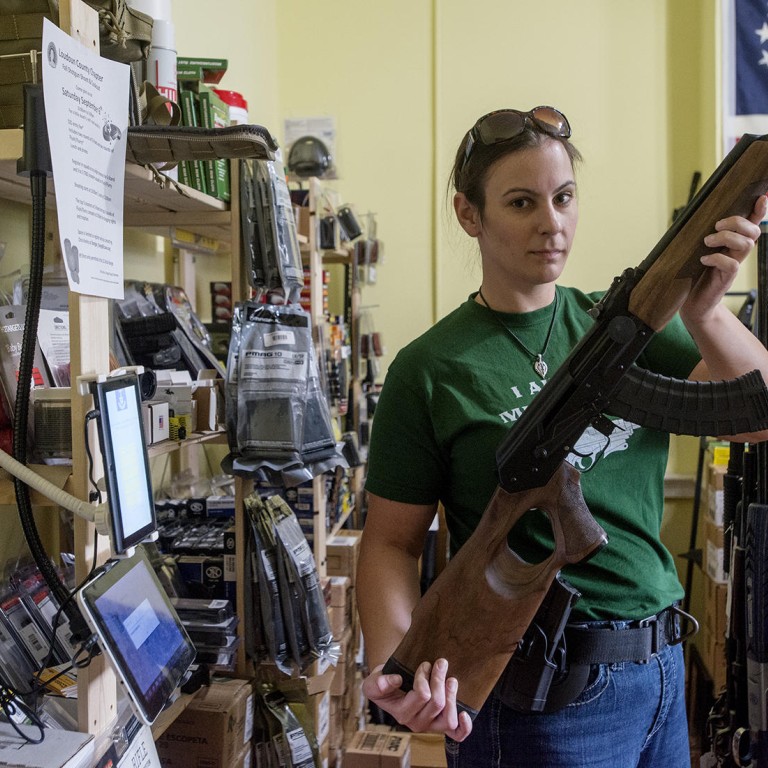
US gun dealers report huge AK-47 sales after Russia sanctions ban
Gun enthusiasts fear that decision to include Russian-made rifles on sanctions list is excuse for Democrats to ban weapons they dislike
Just a day after the Obama administration banned imports of AK-47 assault rifles as part of sanctions against Russia, a US dealer specialising in the weapon had nothing left.
The Atlantic Firearms company in Maryland had shipped hundreds of the weapons as buyers wiped out inventories across the United States.
The frenzy was brought on, in part, by a suspicion among some that the sanctions against Russia for its role in the Ukraine conflict was a back-door excuse to ban guns many Democrats don't like.
Some customers bought up to 10 rifles for nearly US$1,000 each, stockpiling them as investments.
"The gun community moved very, very quickly," said Blaine Bunting, president of Atlantic Firearms. "I don't see this ban going away."
The AK-47 buying frenzy that kicked off in mid-July presents yet another example of the risk that trying to limit gun sales could create a boom in demand.
During the debate over the measure commonly called the Brady Bill in the 1990s, gun purchases skyrocketed. When the Democrats took control of Congress in 2006, sales soared again. When President Barack Obama tried to pass sweeping laws after the 2012 Sandy Hook School shooting, some dealers even sold out of ammunition.
"The great irony here is that the threat of regulation has the perverse effect of stimulating sales, and not just by a little," said Philip Cook, a Duke University gun researcher and author of . "You have millions of extra sales."
For gun dealers, the threat of increased regulations is seen as a form of economic stimulus. But the surge in sales troubles advocates of gun control, who fear some buyers will sell them on at gun shows or through online auction sites, where background checks are not required.
"This has for decades worried people on my end of the business," said Stephen Teret, a public health expert at Johns Hopkins University who studies firearms. "This is a way for guns to move from the licit to illicit markets.
"It might mean a sudden increase of guns in the hands of people who didn't have those guns before, but you may want to accept that short-term problem for a long-term gain by banning a high-powered gun."
Designed by Mikhail Kalashnikov near the end of the second world war, the AK-47 is the most popular assault weapon around the world for its reliability, ease of use and low maintenance needs. Tens of thousands of the semi-automatic versions are imported and sold every year in the US.
In mid-July, a Pennsylvania importer was told Kalashnikov Concern, the original maker of AK-47s, would be hit by sanctions against Russia because of Moscow's actions in Ukraine.
An official said: "Steps taken against Kalashnikov Concern are intended to further exacerbate Russia's economic problems and isolate those contributing to Ukraine's instability."
Gun control advocates argue the frenzies are often stoked by the National Rifle Association. In a message to members after the AK-47 ban, the NRA said: "We of course recognise the important role that enacting sanctions can have in furthering legitimate US foreign policy interests. However, in this instance the extent to which these actions coincide with the stated domestic policy goals of gun control supporters is more than a little unsettling."
Four days after The Truth About Guns, a firearms blog, proclaimed the AK-47 "buying panic begins", adding: "Once again, the firearms industry owes President Obama a debt of gratitude."
